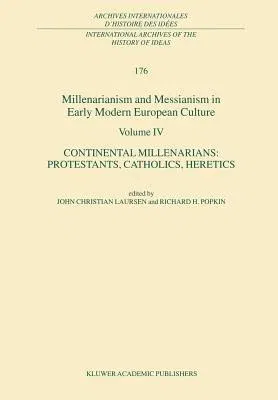Millenarianism and Messianism in Early Modern European Culture Volume IV: Continental Millenarians: Protestants, Catholics, Heretics (2001)Hardcover - 2001, 31 July 2001

Qty
1
Turbo
Ships in 2 - 3 days
In Stock
Free Delivery
Cash on Delivery
15 Days
Free Returns
Secure Checkout

Part of Series
International Archives of the History of Ideas Archives Inte
Part of Series
International Archives of History of Ideas
Part of Series
Millenarianism and Messianism in Early Modern European Culture
Part of Series
Archives Internationales D'Histoire Des Idees/ International
Part of Series
International Archives of the History of Ideas / Archives In
Print Length
126 pages
Language
English
Publisher
Springer
Date Published
31 Jul 2001
ISBN-10
0792368479
ISBN-13
9780792368472
Description
Product Details
Book Edition:
2001
Book Format:
Hardcover
Country of Origin:
US
Date Published:
31 July 2001
Dimensions:
23.39 x
15.6 x
1.12 cm
ISBN-10:
0792368479
ISBN-13:
9780792368472
Language:
English
Location:
Dordrecht
Pages:
126
Publisher:
Series:
Weight:
394.63 gm